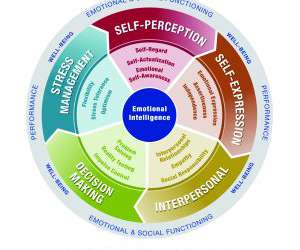Does IQ or Emotional Intelligence Make a Good Leader?
Women on Business
NOVEMBER 24, 2012
As Limaro shares, “It was Daniel Goleman who first brought the term ‘emotional intelligence’ to a wide audience with his 1995 book of that name, and it was he who first applied the concept to business with his 1998 Harvard Business Review article.












































Let's personalize your content